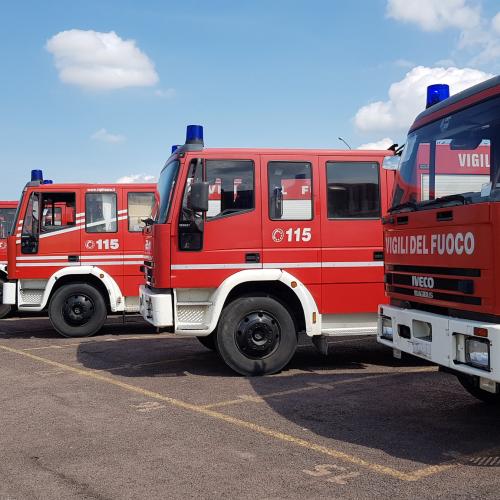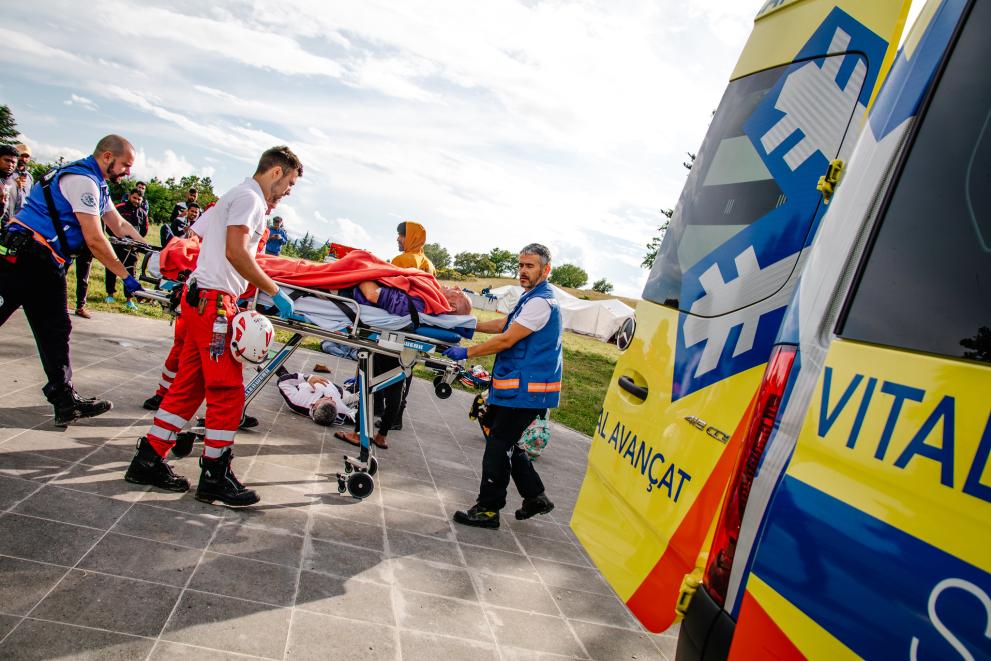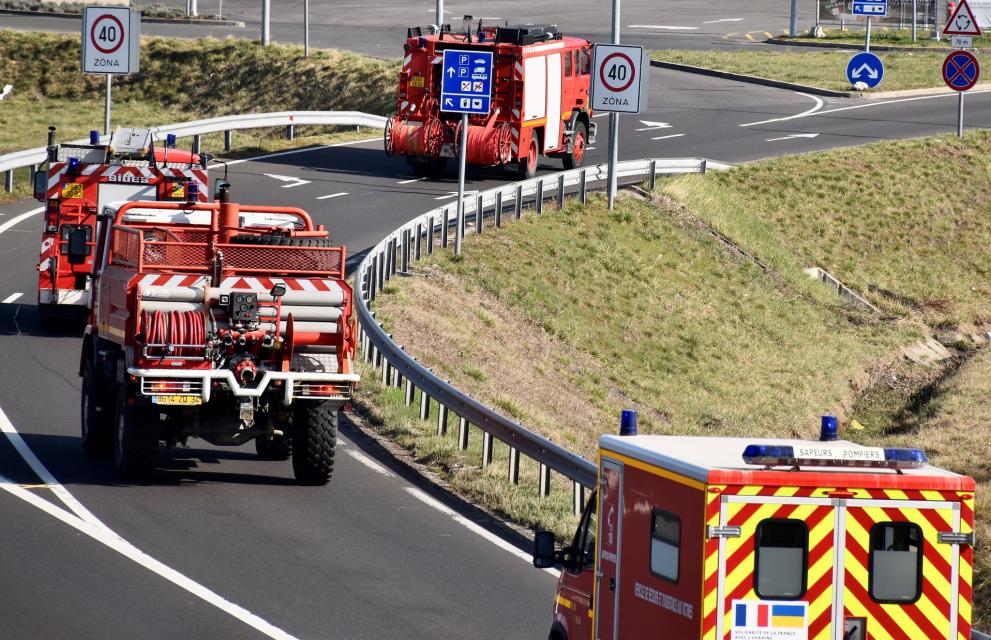
Host Nation Support
A recent workshop in Brussels brought together members of the Civil Protection community to look at the current challenges of Host Nation Support (HNS) and how it can be made more consistent across countries.

When a disaster strikes and a country activates the Union Civil Protection Mechanism, getting support on the ground as soon as possible is the priority. The delivery of that support, however, relies heavily on the host nation having the right conditions in place to accept it.
Host Nation Support means removing (as much as possible) any obstacle to international assistance to ensure that disaster response operations proceed smoothly. This can concern any step of delivery – from customs clearance, through medical provision (ensuring doctors have the right to operate in the country, for example) to logistics and transportation once the assistance reaches the affected country. In a disaster scenario, the Host Nation needs to be able to provide one interface who can coordinate with all the necessary stakeholders in that country in an efficient and timely way.

One of the challenges of HNS is that countries have their own ways of working in a crisis situation. This means that each country’s approach to receiving and integrating international assistance in their national system can also vary considerably. There are no guarantees that a HNS Cell or national HNS liaison officer is available in a crisis situation, for example.
This is where the Host Nation Support Guidelines (HNSG) come in. In a nutshell, the Host Nation Support Guidelines (approved in Jan 2012 by the EU Civil Protection Committee) are intended to support and assist affected states in receiving international assistance during disaster response, and are a key preparedness element to ensure the effectiveness of UCPM operations. They are a non-binding tool aimed at providing guidance and support for the delivery of effective and efficient international assistance in a major emergency. They highlight the key actions to be taken in relation to emergency planning, emergency management and coordination, logistics, transport and legal and financial issues.
The European commission puts a special focus on Host Nation support in its UCPM training. HNS Table-Top Exercises (TTX) have been organised both within and outside Europe, as well as a UCPM Exercises Programme and the creation of new HNS training for deployable and non-deployable personnel within the new UCPM.
A workshop on 26-27 September in Brussels brought stakeholders together from across Member States to look at some of the challenges of the current HNSG, and to look at identifying updates and improvements. It also considered how Host Nation Support can be made more consistent between countries.
The ever-increasing complexity and scale of international assistance provided by the Union Civil Protection Mechanism (UCPM) since the HNSG adoption in 2012 has prompted significant changes to the UCPM and its operations. This has prompted the Commission to initiate a review of the content guidelines and a reflection on the supporting action for the promotion, uptake and implementation both within and outside the EU. This made the workshop particularly timely, and it followed an initial discussion held within the Capacity Experts Working Group (CEWG) on 9 June 2023.

Whilst participants agreed that current HNSG are still valid, it was considered useful to make them more user friendly. AN EU HNS online Toolbox is already providing easier access, and host nations are encouraged to produce and update country factsheets or handbooks. Forms and templates will be embedded in the Common Emergency Communication and Information System (CECIS) as standardised formats, to improve consistency and utility of guidelines.
At the same time, it was recommended to establish a forum to share and discuss examples and good practice among national HNS personnel and experts to network and facilitate exchange of experience between more and less experienced HNS practitioners, which was established as one of the Union Civil Protection Knowledge Network (UCPKN) communities.
The possibility to define minimum requirements, i.e. Terms of Reference (ToR) and training for national HNS Liaison Officers (to be formalised in each Member State) was also put forward. This would help to establish a baseline and improve consistency.
Other issues which were considered in the workshop included looking at how HNSG should be taken into account in a conflict scenario, when only the most basic and essential HNS can be factored in.
The conclusions of this workshop will now be brought to the attention of the Civil Protection Committee (CPC) and ultimately in the upcoming revision of the Commission Implementing Decision 2014/762.
‘Host Nation Support requires sound planning and organisation of all actors involved in disaster management at national, regional and local level. The workshop revealed that to ensure sound HNS it is necessary to remove the obstacles existing between organisations with diverse competences during disaster response. To achieve this objective, it is key that each country raises the awareness of national plans and roles among all involved actors, which requires proper training and exercise.‘

The Knowledge Network editorial team is here to share the news and stories of the Knowledge Network community. We'd love to hear your news, events and personal stories about your life in civil protection and disaster risk management. If you've got a story to share, please contact us.
Sectors